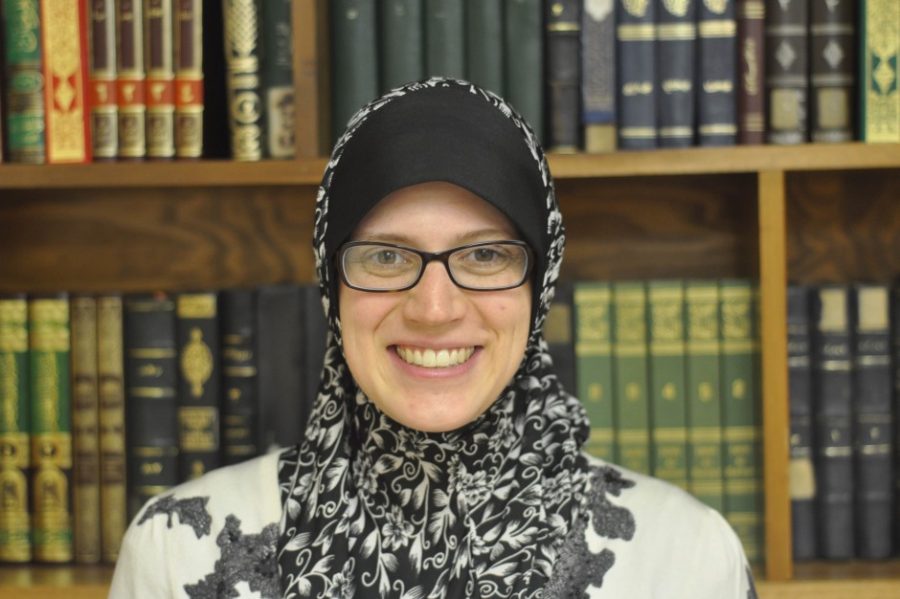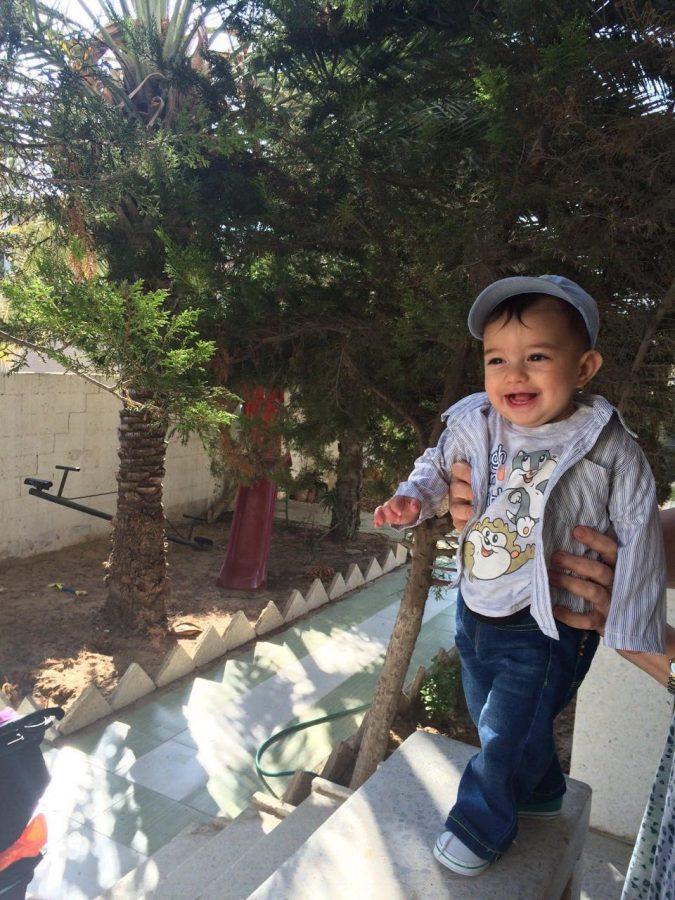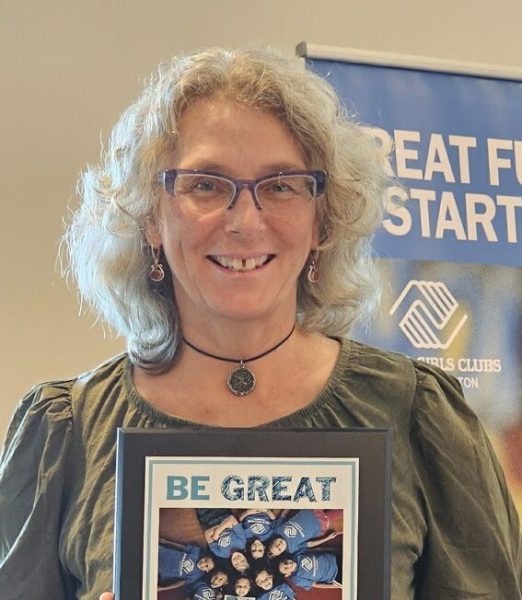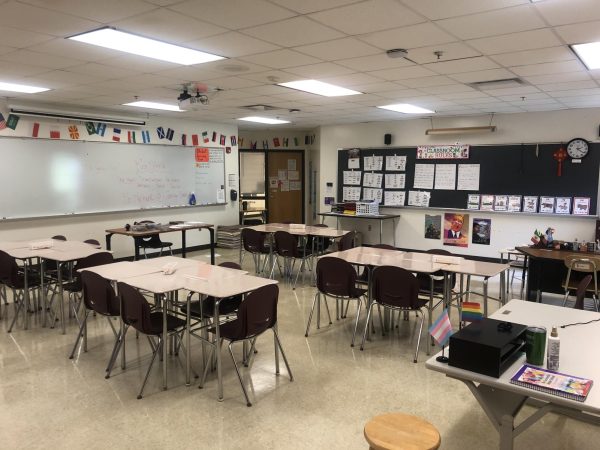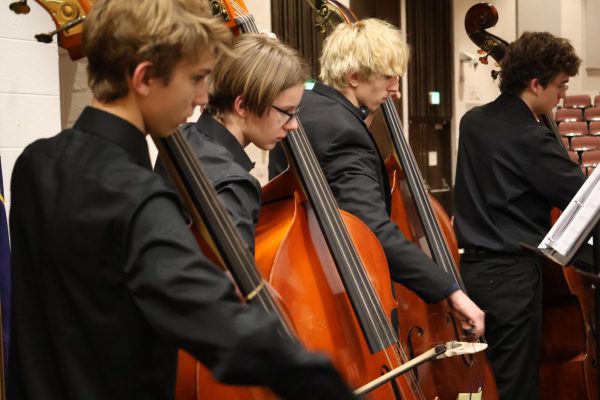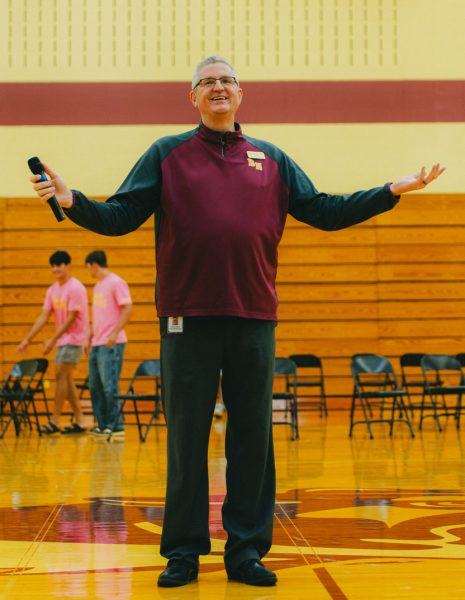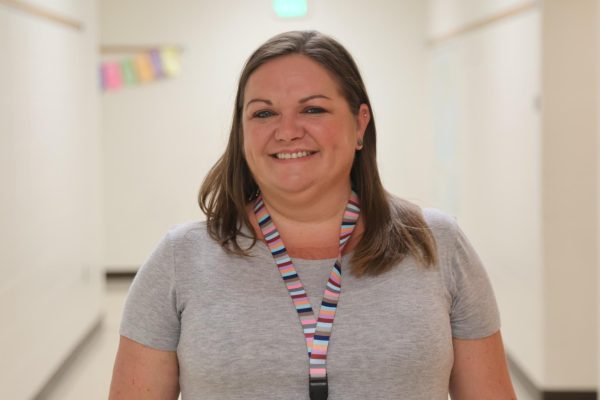Humans of Bloomington
Members of the Muslim Community Share Their Stories
In Oct., 2015, a member of the Islamic Center of Bloomington was sitting outside of Sofra Cafe when she was brutally attacked by a college student. “With cries of ‘white power,’ he slammed her head into the table as he tried to forcibly remove her headscarf,” reads the ‘About’ page on the Openhearted Campaign website.
“Such a traumatic incident sent a powerful shock wave through the entire community,” continues the explanation on the website. “The sisters and brothers at the local mosque questioned their own personal safety, and many residents began to worry that Bloomington wasn’t as welcoming and accepting as they had once believed.”
After the attack, other members of the community decided they had to take action.
That’s when Anna Maidi, the current Women’s President of the ICOB, founded the Openhearted Campaign. The campaign aims to “inspire mutual understanding and peace between Muslim-Americans and all Americans through storytelling, interfaith friendships, and community participation,” according to their webpage.
The campaign is run by Maidi with the help of Enabah Laracuente (Outreach Coordinator), Aubrey Seader (Project Manager), and Mariah Coley (Project Manager). The campaign aims to, “open our doors, minds, and hearts to connect with all of our brothers and sisters in humanity. We honor our relationships as friends and neighbors, and we esteem our mutual desire for understanding, respect, and trust over hateful and divisive rhetoric and actions.”
The campaign features two large projects, “Muslims of Bloomington” and “The Hijabi Diaries,” a blog and podcast, respectively.
Maidi, 29, grew up in Indianapolis. In 2006, she moved to Bloomington to earn her undergraduate degree. At that point in her life, she did not identify as Muslim. She converted to Islam in 2009, and has never looked back.
“I certainly feel that Islam is incredibly important to me, and that it drastically improved my life in many ways,” Maidi said. “Perhaps if it was something I had always had since birth I would take it more for granted.”
While Maidi may have taken her faith for granted if she was born into it, many Muslim-born citizens don’t.
Amr Sabry, 52, thinks that living in the U.S. has strengthened his faith in some ways.
Born in Egypt, Sabry grew up surrounded by Islam.
“In Egypt, the vast majority is Muslim so Islam is not much of an identity factor,” Sabry said. “But when [it] becomes a minority in the U.S., Islam does become a distinguishing identity factor. So in some sense, coming to the U.S. has strengthened my feeling of Muslim identity.”
However, it has not always been easy for Sabry to be a Muslim. He has lived in Bloomington for more than a decade, and works as a Professor of Computer Sciences at Indiana University. He and his family identify as conservative Muslims.
Sabry and his family attend the mosque almost daily, traveling to the place of worship for sacred prayer. The family always takes part in large Eid celebrations and are very active members of the community.
Sabry is also an active member of Interfaith Climate Environmentalist Youth, an energy conservation group co-founded by Mohamed Dabdoub, his step-son. He and Dabdoub are both active members of the group and work to weatherize homes and help the environment in other ways around town. He and his wife frequently give lectures regarding Islam to various groups.
On paper, Sabry is an upstanding citizen.
However, discrimination can come for anyone.
Sabry had a previous marriage, several years ago before he met his current wife. With his ex-wife, who was an American-born non-Muslim, he had four children. After their divorce, both parties lived in Bloomington, but his ex-wife finally decided to move and take the children with her to Utah.
“I opposed it and we went to court,” Sabry said. “Both the judge and her lawyer used Islam against me.”
In court, the judge and his ex-wife’s lawyer would make discriminatory accusations towards Sabry, such as: “You are an old school Muslim so the children don’t have to come see you,” “That religion of yours is about hitting children,” and “So, do you regularly slap women around in your religion?”
Simply due to the fact that the court officials did not have a comprehensive concept of Islam, or perhaps were xenophobic or personally biased against the religion, Sabry was denied access to his children for an entire year. He was not allowed to visit or see them, and it took months for him to be able to even Skype with his children. Eventually, after he was allowed to contact his children again, he exercised his right to get a new judge for the case.
It is not only at home that American Muslims face struggle.
Many Muslim citizens have family in the Middle East who they have not been allowed to see and fear for the safety of. Rania Noffel, 41, was born and raised in Gaza City, a part of the Gaza Strip, the portion of Israel that has been set aside for Palestinians.
Rania Noffel calls Gaza “the biggest prison in the world.” She has not been able to see her family since 2012. As a Palestinian American, Rania Noffel can offer a unique perspective.
The conflict in Israel and Palestine is, from an American perspective, drastically different from that of someone who has lived in the midst of it.
“Palestinians value life, freedom, and education,” Rania Noffel said. “Most families send their kids to local colleges for higher education. It shocks me [that] people believe the media and think about Palestinians as terrorists. There is no comparison between the Israeli military airplanes, weapons, machinery, and nuclear weapons, and the Palestinians handguns or stones.”
Today, though, Rania Noffel leads a very American life. She works as a pharmacist, has three children, and tries to honor her religion to the best of her ability on a day to day basis.
“I am an American citizen that has done more volunteer work, paid more taxes, and obeyed the laws [better] than Trump himself,” Rania Noffel said.
Amanda Adhami, 39, has also been affected by tensions abroad, although indirectly. Although Adhami herself was born in the U.S. and completed graduate school here, Adhami’s aunt and family lived in Syria until very recently.
Because of the war, her aunt lost her home, and their family has been separated. Some have immigrated to Lebanon, Sweden, and Turkey. Adhami’s aunt arrived in the U.S. this past December on a permanent resident visa. She had originally planned to travel back to Europe in a few months to visit her daughter, but under the new administration she is not permitted to leave the country.With the most recent ruling, she may be allowed to, but it would be dangerous to take the chance.
“My mother-in-law is Canadian, has lived in Canada for [46] years, but was born in Syria and was advised by legal counsel to not come to the US at this time,” Amr Sabry said. “One of the associate deans at IU is originally from Iran. He had a visit scheduled to India to meet with CEOs of tech companies and president of universities to recruit students. IU legal counsel advised him to cancel his trip and he did. More generally, the Computer Science department relies in a crucial way on international students and this year many of the students, not just Muslim or from Muslim countries, but also from China and Europe, have communicated with us and expressed their concern about accepting our offer to join the department.”
Many other Bloomington Muslims have been affected, as well.
“Many people I know have been affected by the travel ban,” said Anna Maidi. “The majority of our congregation [are] immigrants. There are Syrians in our congregation that have family back home.”
For many, though, daily life is completely normal.
Yusuf Noffel, a freshman at North, has grown up in Bloomington and been raised Muslim.
“I got to the mosque occasionally,” he said. “I pray five times a day. I pray right after school and right before, and at this time of year it works out. I get home just in time to pray.”
For Yusuf Noffel, praying is the most important part of his religion. He said that it reminds him of the central idea of Islam, which is that there is only one god, and that that god should be honored. This is a central idea of all the Abrahamic religions.
“It’s mainly just taking a little bit of time of your day, just maybe five minutes,” he said. “Taking that out of your day and just remembering what you believe in, where you come from […] remembering what you think, who you are.”
While Yusuf Noffel has not experienced any discrimination or harassment for his religion at North, he has in the past. He said that he wishes Bloomington, and the overall country, could be a more accepting, adaptable, and diversified society. For many people, not just Muslims, this could make things a whole lot easier.
However, he does think that Bloomington is a safe haven in the midst of a more Republican state.
“There’s just really not that many problems here,” he said. “If people ask ‘am I a Muslim’ I just say ‘yeah, I’m a Muslim,’ and they’re all right, it doesn’t do anything.”
While the Bloomington Muslim community is comparatively small, there are considerable numbers of practicing Muslims living in Bloomington. Many estimate it to be around 700-1000 people.
Although not many people go to the mosque everyday, or even weekly, large groups do congregate to celebrate holidays and special events.
As for politics, Yusuf Noffel doesn’t think it has been harder to be a Muslim since Trump ran and got elected.
Yusuf Noffel said that people have always told him to set an example for his society.
“If I’m doing something good, people will be like ‘oh look, he’s Muslim, he’s doing something good,’ but if I do something bad, it’s also related,” he said.
He believes that if he does something negative, the fact that he is Muslim will matter more in today’s society than if he takes positive action.
Yusuf Noffel thinks that much of the stereotyping that goes on within the Muslim community is based on skin color and appearance.
“How I look physically really affects [stereotyping],” he said. “For example, if I had black hair and was dark skinned and everyone knew that I looked like an Arab, it would make a bigger difference than if people realized I was a Muslim only because I told them, and not because I look like one. If they see this normal brown haired kid walking down the hallway, the first impression would be ‘oh, he’s just like me.’ If they see someone with black hair, if they see something like that, then their first impression is a lot different.”
Because of this discrimination, he would like to let the world know one thing: “It’s not something to be afraid of to be Muslim,” he said. “We’re still the same people. I’m no different than anyone else.”
Although Muslims continue to face heightened discrimination and misunderstanding on the part of non-muslims, many Muslims feel that there is little cause.
“I would say that Muslims have the same values that you do, and if we are American Muslims, we even have the same culture as you,” said Anna Maidi. “People that fear us or hate us seem to base these feelings on what they perceive to be “differences” between Muslims and other Americans, but really we are so much the same.”
“I would just encourage people to learn the history of Islam in order to see how peaceful of a religion it is,” Amanda Adhami said.
Many Muslims feel this way.
“If I could tell the world one thing about Muslim faith, it would be a phrase from the holy book Quran translated as: O’people we have created you all out of a male and a female,” Rania Noffel said. “With all humanity sharing one father and one mother, let’s focus on our similarities and let each other live peacefully.”
As for the current political climate, the newly elected POTUS isn’t making racial or religious tensions any easier.
However, it’s not as if the Trump Administration created discrimination, Trump is only a symptom of the overall disease. The climate he has inspired could end up being one of change and education, where Americans learn more about one another.
“Islamophobia existed long before Trump and will exist long after him,” Anna Maidi said. “He doesn’t make it any easier, and certainly is already working directly against us as a minority group, but it’s just another brick on the pile for me.”


